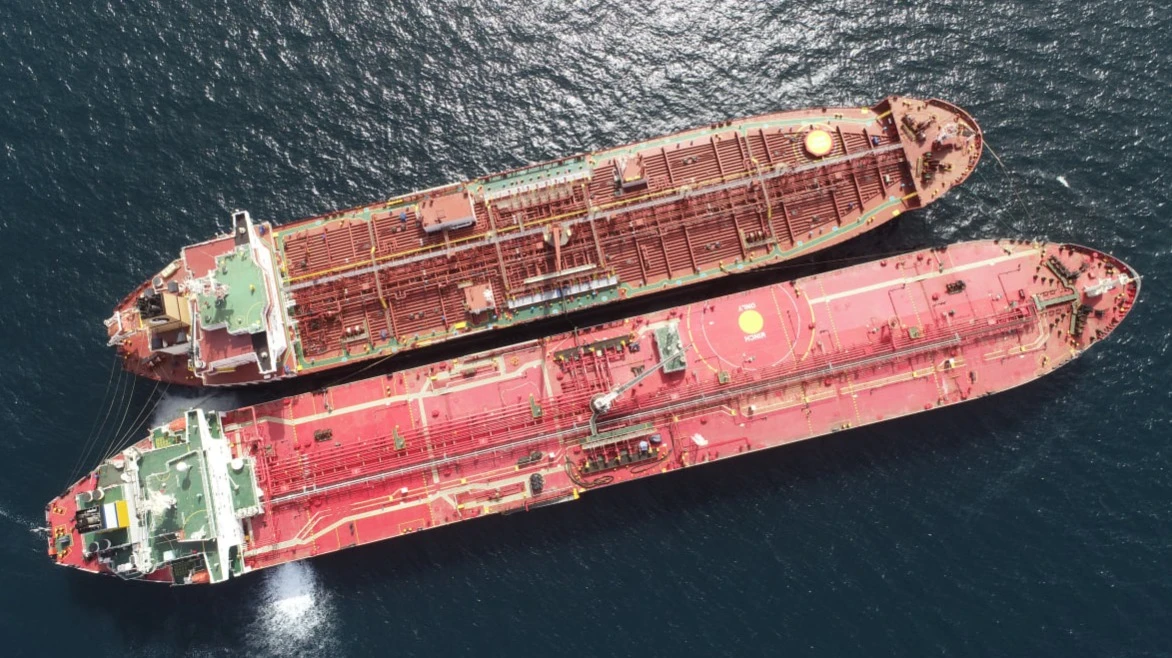Oil traders brace for turmoil over Iran crisis - Bloomberg
Bourse indicators point to growing concerns about the protracted conflict in the Middle East

Oil market participants are bracing for further price gains after Israeli strikes on Iranian energy facilities heightened risks to Middle East supplies. Although the latest attack focused on Iran's domestic energy grid rather than export capacity, oil traders and analysts expect further turbulence after last Friday's surge in prices, the biggest in three years, wrote Bloomberg.
Details
At the opening of trading on June 16, the price of Brent jumped by 5.5% before correcting to $75 per barrel. North American WTI crude oil was trading around $74. Market indicators point not only to concerns about near-term supply risks, but also to growing concerns about the protracted conflict in the Middle East. The difference between the prices of the next two December single-grade crude futures, a key indicator of long-term expectations, rose $1.29 a barrel to $3.48, calculated by Bloomberg.
The oil options market is demonstrating volatile optimism: according to Bloomberg, during the first hours of the Asian session on June 16, several thousand call options with execution in August and strike above $80 per barrel changed hands - such options bring profit when prices rise. At the same time, about 2 thousand contracts were concluded for August Brent options with strikes of $100 and $101. Options are not usually traded on such a scale in the Asian part of the trading day, notes the agency.
What the analysts are saying
"The escalation of what is likely a protracted conflict and its spread to economic targets with civilian casualties will further increase the risk premium in the oil market earlier this week," stated Bob McNally, founder of Rapidan Energy and former co
An attack on Iran's gas infrastructure is a concern, but the main threat to the oil market remains the risk of closing the Strait of Hormuz. About 20% of the world's oil flows through this narrow strait. Prices could rise significantly if Tehran attempts to close the route.
"We don't expect crude oil prices to rise significantly further unless there is an attempt to close the Strait of Hormuz or the Iranian-backed Houthis in Yemen start attacking ships," said Robert Rennie, head of commodities research - We see a ceiling for Brent below $80."
China is the largest importer of Iranian oil, and attempts to block the Strait of Hormuz would likely disrupt Tehran's own exports. С экономической и политической точек зрения закрытие водного пути не имеет смысла, отмечает аналитик Kpler Мую Сюй.
While the blockade of the Strait of Hormuz has recently become little more than a "market scarecrow," the energy sector is "clearly in the line of fire," Helima Croft, head of global commodity strategy at RBC Capital Markets, said. She cited a possible Israeli strike on Iran's oil terminal on Kharq Island, as well as attacks by pro-Iranian forces on targets in Iraq, among realistic escalation scenarios. "If Israel's primary goal in a war is regime change [in Iran], we don't think the Iranian leadership will prioritize maintaining a stable oil supply," emphasized Croft.
Context
Israel on June 14 temporarily disabled a gas processing plant linked to Iran's largest gas field, South Pars, and also struck fuel storage facilities. Despite U.S. sanctions, Iran remains the third-largest producer in the Organization of the Petroleum Exporting Countries (OPEC). It remains to be seen whether OPEC will be able to offset a significant and prolonged supply cut from Iran, which produces about 3.4 million bpd, stresses Bloomberg.
The International Energy Agency (IEA), established by oil-consuming countries, believes that global oil markets are adequately supplied thanks to slowing demand and recent production increases by OPEC+. The agency reiterated its readiness to use reserve stocks if necessary.
